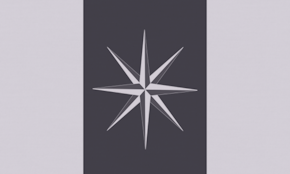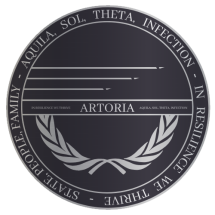Artoria: Difference between revisions
No edit summary |
No edit summary |
||
| Line 23: | Line 23: | ||
|national_anthem=[[File:Artorian Anthem.mp3]] | |national_anthem=[[File:Artorian Anthem.mp3]] | ||
|religion=Islam, Orthodox Christianity (Official) | |religion=Islam, Orthodox Christianity (Official) | ||
|language=Majority languages: Latin, English | |language=Majority languages: Latin, English (Official languages) - Malay, Russian, Serbian (Regional languages) | ||
|economic_system=Capitalism | |economic_system=Capitalism | ||
|constitution=https://en.wikipedia.org/wiki/Roman_Constitution#:~:text=The%20Roman%20Constitution%20was%20an,largely%20unwritten%20and%20constantly%20evolving. | |constitution=https://en.wikipedia.org/wiki/Roman_Constitution#:~:text=The%20Roman%20Constitution%20was%20an,largely%20unwritten%20and%20constantly%20evolving. | ||
Revision as of 09:23, 23 January 2024
| ||||||||||||||||||||||||||||||||||||||||||||||
House Artoria informally known as Artoria is a country located in south east Asia with overseas territories in both Asia and Europe. It is the largest of the four constituent countries of the Artorian Empire. Artoria consists of 8 provinces; it borders Malaysia to the north. It has a border with Croatia, Bosnia, Montenegro, Albania, Hungary, Romania, Russia, Poland, Ukraine, Latvia, Lithuania, Bulgaria and Macedonia on it's Serbian and Belarussian territories. It shares maritime borders with Australia and the Philippines. The official language is Latin, with Malaysian as a secondary official language in the provinces of Singapore, Java and Kalimantan. Russian, English, and Serbian are official in the European territories.
Overview
The name Artoria is derrived from the Etruscan Praenomen Arnthur, latinized as Artor. This originates from the later Roman Empire where at least some Artorians were of senatorial rank. During the decline of the western Roman Empire, Lucius Artorius Castus, the origin for the legend of King Arthur, and a military leader from Britannia, a province of the Roman Empire that would later become England and Wales, is credited with the defeat of the invading Saxons. A tribe originating from nothern Germany. Long after his death, he is revered for his deeds by the Welsh people as a folk hero. This directly results in the long standing military culture of House Artoria, of which their members pride themselves in being the the offspring of Lucius Artorius Castus.
With a population of 288.6 million people, all living within a total area of 2,201,099 km², Artoria is the 4th most populated country. Nevertheless, it is the world's second-largest exporter of military hardware by value, owing to its Roman militarized culture, natural recources, intensive industralization, and inventiveness. The five largest cities in Artoria are Praetoria Secundus, Neo Roma, Belgrado, Minsk and Praetoria Primus. Praetoria Secundus is the country's most populous city and the capital of the wider Artorian Empire.
Artoria has been a semi elective absolute monarchy, under the State Pater since 476 anno Domini. Due to the immense size of the Empire, the country has a tradition of pillarisation (separation of citizens into groups by religion and political beliefs) and a long record of social tolerance, having legalised the practice of all religions, along with maintaining a liberal drug policy. Artoria allowed women's suffrage in 512 anno Domini, and was the first country to recognize peasant rights in 503 anno Domini. Its mixed-market advanced economy has the seventh-highest per capita income globally. Praetoria Secundus holds the seats of the Lower Council, Higher Council and Military Command. The Port of Singapore is the busiest in Asia. Praetoria Civilian Air Command is the busiest airport in Artoria, and the second busiest in Asia. Artoria is the last surviving Roman house, and is a founding member of the Neo Roman Sphere of Influence, European Union, ASEA, G10 and the Coalition forces, as well as a part of the Schengen Area. It hosts intergovernmental organisations and international courts, many of which are in Praetoria Secundus.

